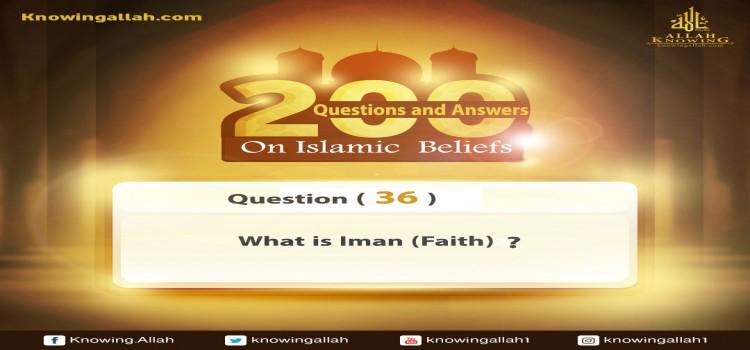Benefits and Fruits of Faith - Part I
Benefits and Fruits of Faith - Part I
By Ali al-Sallaby
Out of His wisdom, Allah The Almighty has decreed that the hearts of the believers sense and taste the fruits of Faith (Iman) so that they might race towards attaining Allah’s pleasure and ultimately put their trust in Him. Indeed, if the tree of faith is strong, deeply rooted, extensively branched and sprouts of its greenery, it reaps complete benefit for its beholder as well as others, in both of this world and the Hereafter.
There are numerous great benefits and fruits of Iman that Allah Almighty illustrated in His Noble Book as follows:
•Enjoying Allah’s protection. It is indeed the greatest prize towards which believers may compete. Allah The Almighty says:
“Unquestionably, [for] the allies of Allah there will be no fear concerning them, nor will they grieve”[Yunus: 62].
Allah The Almighty then describes His Awliya [pious obedient servants] in His words
“Those who believed and would fear Allah”[Yunus: 63].
Verily, Allah is the Protector of every pious believer as in conformity with His words:
“Allah is the ally of those who believe. He brings them out from darkness into the light”[Al-Baqarah: 257].
This verse means that Allah The Almighty delivers His Awliya from the darkness of disbelief to the light of faith; from the darkness of ignorance to the light of knowledge; from the darkness of sins to the light of obedience and from the darkness of negligence to the light of knowing and remembering Him. Ultimately, Allah The Almighty delivers His believing servants from the darkness of various forms of evil to the light of goodness in this world and the Hereafter.
The believers only attain these tremendous rewards due to their sound faith. Such sound faith can never be attained except through piety.
•Gaining Allah’s pleasure and favor. Allah The Almighty says:
“The believing men and believing women are allies of one another. They enjoin what is right and forbid what is wrong and establish prayer and give Zakah and obey Allah and His Messenger. Those - Allah will have mercy upon them. Indeed, Allah is Exalted in Might and Wise. Allah has promised the believing men and believing women gardens beneath which rivers flow, wherein they abide eternally, and pleasant dwellings in gardens of perpetual residence; but approval from Allah is greater. It is that which is the great attainment” (At-Tawbah: 71-72).
The believers attained Allah’s pleasure, mercy and beautiful dwelling places through the faith with which they developed their own selves and by adhering to the commands of Allah The Almighty and His Messenger (peace and blessings be upon him). They also attained these rewards through enjoining what is good and forbidding what is evil. In this manner they undertook the noblest means and the richest of objectives. This is Allah’s great favor.
•Attaining Allah’s help and salvation from all evils and calamities as in conformity with His words:
“Indeed, Allah defends those who have believed” [Al Hajj : 38].
This verse means that Allah The Almighty protects the believers from all evils and from the Devils of Jinn and mankind. Allah protects them against the plots of their enemies and relieves the hardships before they befall them, and either ease them once they did.
This is clear in the words of Prophet Yunus:
“He called out within the darkness (saying), "There is no deity except You; exalted are You. Indeed, I have been of the wrongdoers." (Al-Anbiya’: 87).
Allah immediately responded to His supplication by His words:
“So We responded to him and saved him from the distress. And thus do We save the believers”(Al-Anbiya’: 88).
This verse means that Allah saves His believing servants from distress the same way He did with His Prophet Yunus. The Prophet (peace and blessings be upon him) said: “Verily, no distressed person implores Allah The Almighty with the very words of my brother (Prophet) Yunus except Allah will relieve His distress: “There is no deity worthy of worship but You, exalted be You, I was indeed of the evildoers”.
Allah The Almighty also says,
“And whoever fears Allah - He will make for him of his matter ease”
[At-Talaq: 4].
Hence, the pious believer has his affairs made easy by Allah The Almighty and is guided to the path of ease and righteousness. He is away from the path of hardship and sin. Allah The Almighty also delivers believers from all suffering and grants them an escape from all difficult affairs; just as He provides them with provision from whence they had not anticipated. There are multiple evidences from the Qur’an and Sunnah attest to this[1].
•Faith and righteousness which is a branch of it lead to a life of contentment and happiness in both this life and the Hereafter, Allah The Almighty says:
“Whoever works righteousness, man or woman, and has Faith, verily, to him will We give a new Life, a life that is good and pure and We will bestow on such their reward according to the best of their actions”[An-Nahl 16: 97].
Faith produces tranquility, contentment and assurance of the heart. It also prevents dependence on anyone other than Allah The Almighty, and that is the cause of happiness in this life.
For happiness is based on: the comfort of the heart, its tranquility, and the absence of disarray and disturbances experienced by those lacking in faith.
•Soundness of the heart produces sound faith. All words and actions are only sound and good in accordance with the soundness of faith and sincerity in the heart of the individual speaking or practicing such deeds. This is why Allah The Almighty mentions this important condition and prerequisite for all actions as in conformity with His words:
“So whoever does righteous deeds while he is a believer - no denial will there be for his effort (the reward for his good deeds)” (Al-Anbiya’ 21: 94).
In other words, a believer’s efforts will not be denied and his actions will not be lost. Rather, his reward will be multiplied in accordance with the strength of faith in his heart. Allah The Almighty says,
“But whoever desires the Hereafter and exerts the effort due to it while he is a believer - it is those whose effort is ever appreciated [by Allah].”[Al-Isra’: 19].
To strive for the Hereafter (i.e. (Paradise) is to undertake all the different deeds that lead to it and bring one closer to it as taught to us by Prophet Mohammed (peace and blessings be upon him). If these deeds are founded and built on faith, then they are rewarded, accepted and multiplied in reward by Allah The Almighty, and none of them are lost or go without recompense.
If, however, such deeds are not founded on faith, it doesn’t matter how much effort the doer makes. Such actions will not be accepted by Allah The Almighty. Allah The Almighty says,
“And We will regard what they have done of deeds and make them as dust dispersed” (Al-Furqaan : 23).
That is because they were based on other than faith in Allah The Almighty and belief in His Prophet (pbuh) or other than sincerity towards Allah The Almighty and adherence to the traditions of His Prophet (pbuh). Allah The Almighty says,
"Shall we inform you [believers] of the greatest losers as to [their] deeds? [They are] those whose effort is lost in worldly life, while they think that they are doing well in work. Those are the ones who disbelieve in the verses of their Lord and in [their] meeting Him, so their deeds have become worthless; and We will not assign to them on the Day of Resurrection any importance.” (Al-Kahf: 103-105).
They squandered their faith and replaced it with unbelief in Allah The Almighty and His signs, their deeds were lost. Allah The Almighty says,
“If you should associate [anything] with Allah, your work would surely become worthless” (Az-Zumur 39: 65).
“But if they had associated others with Allah, then worthless for them would be whatever they were doing”(Al-An’am: 88).
For this reason, apostasy renders one’s righteous deeds void, just as the embracement of Islam abolishes all previous sins, no matter how great they were. Also, repentance from all sins that counter faith or weaken it also wipes out these sins [2].
------------------------------------------------------------------------------------
[1]At-Tawdheeh wal Bayaan- p. 67
[2]Imam Muhammed ibn ‘Ali Ash-Shawkaani then became As-Saghaani Al-Qaadi. He is a scholar of hadith, jurist, legal theorist and Mufasir. His tafsir named Fat-h Al-Qadir, died in 1250 AH. You may refer to Manaahij Al-Mufasrin [p. 50].



